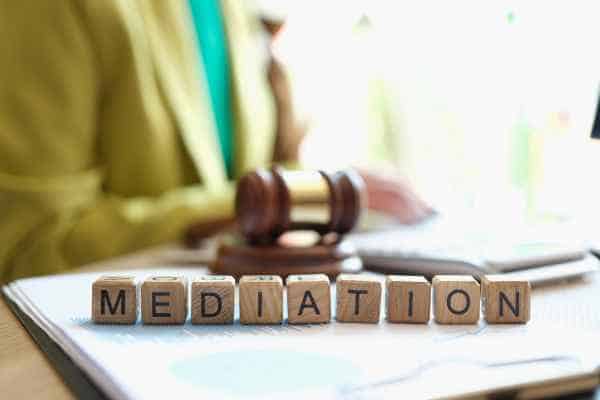Information Step Step Guide
Going through a divorce, or separation? Speak to MIAMS Hampshire

Going through a divorce, or separation? Speak to MIAMS Hampshire

Mediation is a way of helping you to make decisions through mutual agreement following dispute with your ex-partner. Many people find mediation to be a very satisfying way of reaching agreement as it involves them taking responsibility for their own decisions, rather than leaving these purely to the legal system. Mediation involves considering issues involving a divorce or separation. This can be during the process of divorce or separation or after this event. There are two main benefits of mediation. Firstly, it is very helpful for children to see that constructive mediation is taking place. Secondly, it is often much cheaper to engage in mediation than to instruct legal professionals,
Mediation is primarily considered to be for parents (whatever their age) and, although this is true of most mediations this is by no means the case for all. Grandparents are frequently involved in mediation proceedings, as are older siblings. In more complex, extended, families, there may be a wide range of parties involved in mediation. Mediation Hampshire involves a variety of decisions, mainly around property and finance, but also around arrangements involving contact with children.
There are a wide variety of areas that can be successfully mediated. In terms of children and parenting, contact arrangements and residence can be agreed upon. MIAMS Mediation Hampshire also covers financial arrangements including maintenance and child support. Related to these are decisions involving property, possessions, debt and pensions and other financial endowments. There are also a number of related issues that can be discussed.
Mediation is often a ‘third space’ where parents can discuss things away from the home, or a legal, environment. It is a safe and non-judgemental environment in which to think about the various options which are open to you. The process of mediation is considered to be organised so as to enable you to think clearly, and discuss in a rational fashion, the options that are open to you. Fundamentally, the outcome of mediation should be a lasting agreement between you.
MIAMS Family Mediation has a number of benefits over other methods. Firstly, mediation is much cheaper than other legal avenues. It also allows you to maintain some kind of relationship, at least in terms of negotiation, with your partner. As mediation is a structured procedure it allows you to consider all issues. Mediators are trained to help clients to consider all possibilities and types of mutual agreement. Unlike complex and obscure legal procedures, mediation is simple and you have control over the procedure (including whether mediation should continue) at all times. There in no standard, one size fits all, outcome to mediation and it is flexible enough to allow for a variety of outcomes.
Initial meetings: an initial meeting involves the Hampshire mediator meeting you and your ex-partner. They will assess suitability for legal aid. There will always be part of the mediation meeting that involves seeing each client on an individual basis. At this stage we can assess if mediation is suitable for you.
MIAMS: Mediation Information and Assessment Meetings (MIAMS) are now a formal requirement for anyone applying to court if it concerns children or financial matters.
Joint meetings: Following these meetings, joint appointments can commence where you and your ex-partner will be present.
General information about Mediation, Please click the links below to find out more info:
Family’s are deeply affected by divorce or separation, especially when there are children in the family. Often these painful situations can be helped with the supportof a mediator who will hold a Mediation Information Assessment Meeting or MIAM. A MIAM can guide communication and set the tone for the goals of mediation.
When attending a court proceeding on the matter, the family will need to present an FM1 (Family Mediation 1 form) which confirms that a MIAM has been held.
As of April 2014, significant changes were made to the judicial system regarding separation and divorces, particularly where children were involved. These changes ensure that the welfare of the children is paramount, with minimal impact on the children and as little negativity as possible. One of the major changes was a requirement for a mediation session or MIAM to be attended before any court proceedings to do with financial or custody matters (hence the need for a FM1 to be produced).
If the split is acrimonious and both parties find it difficult to be in the same room, as would happen with face to face mediation, it is possible to ask for shuttle mediation.
Shuttle sessions happen when the two parties are seated in separate rooms either virtually or physically and the mediator shuttles between the two, discussing issues and offering solutions.
Shuttle mediation is often a good solution with distance between the parties allowing for rational and reasoned thinking.
MIAMS Hampshire Mediators can also help with will disputes: resolving issues between and coming to an acceptable compromise to the conflict that arises as a result of separation.